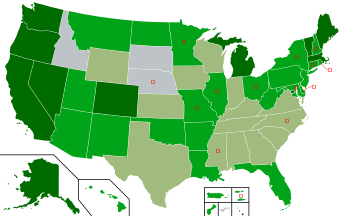
 |
GUESTBOOK |
| The Up Store is not
affiliated with brands 7-up or United Parcel Service. Copyright 2006-2025 The UP Store. Powered by HostRing Steadfast Chicago Ill USA |
| TIC-TAC-TOE |
| Win, Lose or Draw - Yes, this JavaScript Game will let you Win. You just have to discover how! - 3 ways |

|
 |
 |

|
| Link Exchange Free Section - To place your AD Contact dalebaron |
| Your AD Here with any Donation | Your AD Here with any Donation |
 |
 |
 |
 |
 |
 |

|
|
Some things to know about CBD oil Updated April 2020 for TheUPstore.com
From original article by Jon Johnson Update:
Epidiolex controlled
substance classification has changed.
Table of contents
1. What is CBD oil?
2. Benefits
3. Legality
4. Side effects
5. Risks
6. How to use
People take or apply cannabidiol to treat a variety of symptoms, but its
use is controversial. There is some confusion about what it is and the
effects it has on the human body.
Cannabidiol (CBD) may have some health benefits, and it may
also pose risks. Products containing the compound are now legal in many
American states where marijuana is not.
This article will explain what CBD is, its purported health
benefits, how to use it, potential risks, and issues surrounding its
legality in the United States. In
June 2018, the country's Food and Drug Administration (FDA) approved the
prescription use of Epidiolex, a purified form of CBD oil, for treating
two types of epilepsy.
1. What is CBD oil?
CBD is one of many compounds, known as cannabinoids, in the
cannabis plant. Researchers have been looking at the potential
therapeutic uses of CBD.
Oils that contain concentrations of CBD are known as CBD
oils. The concentrations and the uses of these oils vary.
Q: Is CBD marijuana?
A: No, CBD oil is a cannabinoid derived from the
cannabis plant.
Until recently, the best-known compound in cannabis was
delta-9 tetrahydrocannabinol (THC). This is the most active ingredient
in marijuana.
Marijuana contains both THC and CBD, and these compounds have
different effects. THC creates a mind-altering "high" when it is broken down by heat and introduced into the body. This results from smoking marijuana or using it in cooking for example, at 200 degrees or so.
Unlike THC, CBD is not psychoactive. This means that it does
not change the state of mind of the person who uses it.
However, CBD does appear to produce significant changes in
the body, and some research suggests that it has medical benefits.
The least processed form of the cannabis plant, known as
hemp, contains most of the CBD used medicinally. Though hemp and
marijuana come from the same plant, Cannabis sativa, the two are very
different.
Over the years, marijuana farmers have selectively bred their
plants to contain high levels of THC and other compounds that interested
them, often because the compounds produced a smell or had another effect
on the plant's flowers.
However, hemp farmers have rarely modified the plant. These
hemp plants are used to create CBD oil.
How CBD works
All cannabinoids, including CBD, produce effects in the body
by attaching to certain receptors.
The human body produces certain cannabinoids on its own. It
also has two receptors for cannabinoids, called the CB1 receptors and
CB2 receptors.
CB1 receptors are located throughout the body, but many are
in the brain.
The CB1 receptors in the brain deal with coordination and movement,
pain, emotions, and mood, thinking, appetite, and memories, among other
factors. THC attaches to these receptors.
CB2 receptors are more common in the immune system. They affect
inflammation and pain.
Researchers once believed that CBD attached to these CB2
receptors, but it now appears that CBD does not attach directly to
either receptor. Instead, it seems to direct the body to use more of its
own cannabinoids.
2. Benefits
Because of the way that CBD acts in the body, it has many potential
benefits.
Natural pain relief and anti-inflammatory properties
People tend to use prescription or over-the-counter drugs to
relieve stiffness and pain, including chronic pain.
Some people believe that CBD offers a more natural
alternative.
Authors of a study published in the Journal of Experimental
Medicine found that CBD significantly reduced chronic inflammation and
pain in some mice and rats.
The researchers suggested that the non-psychoactive compounds
in marijuana, such as CBD, could constitute a new treatment for chronic
pain.
Quitting smoking and drug withdrawals
Some promising evidence suggests that CBD use may help people
to quit smoking. A pilot study published in Addictive Behaviors found
that smokers who used inhalers containing CBD smoked fewer cigarettes
than usual and had no further cravings for nicotine.
A similar review, published in Neurotherapeutics found that
CBD may be a promising treatment for people with opioid addiction
disorders.
The researchers noted that CBD reduced some symptoms
associated with substance use disorders. These included anxiety,
mood-related symptoms, pain, and insomnia.
More research is necessary, but these findings suggest that
CBD may help to prevent or reduce withdrawal symptoms.
Epilepsy
After researching the safety and effectiveness of CBD oil for
treating epilepsy, the FDA approved the use of CBD (Epidiolex) as a
therapy for two rare conditions characterized by of epileptic seizures.
In the U.S., a doctor can prescribe Epidiolex to treat:
* Lennox-Gastaut
syndrome (LGS), a condition that appears between the ages of 3 and 5
years and involves different kinds of seizures
* Dravet
syndrome (DS), a rare genetic condition that appears in the first year
of life and involves frequent, fever-related seizures
The types of seizures that characterize LGS or DS are
difficult to control with other types of medication.
The FDA specified that doctors could not prescribe Epidiolex
for children younger than 2 years. A physician or pharmacist will
determine the right dosage based on body weight.
Other neurological symptoms and disorders
Researchers are studying the effects of CBD on various
neuropsychiatric disorders.
Authors of a 2014 review noted that CBD has anti-seizure
properties and a low risk of side effects for people with epilepsy.
Studies suggest that CBD may also treat many complications
linked to epilepsy, such as neurodegeneration, neuronal injury, and
psychiatric diseases.
Another study, published in Current Pharmaceutical Design,
found that CBD may produce effects similar to those of certain
antipsychotic drugs, and that the compound may provide a safe and
effective treatment for people with schizophrenia.
Fighting cancer
Some researchers have found that CBD may prove to combat
cancer.
Authors of a review published in the British Journal of
Clinical Pharmacology found evidence that CBD significantly helped to
prevent the spread of cancer.
In addition, the researchers noted that the compound tends to
suppress the growth of cancer cells and promote their destruction.
The authors pointed out that CBD has very low levels of
toxicity compared to chemotherapy and called for further research into
its potential as an accompaniment to standard cancer treatments.
Anxiety disorders
Doctors often advise people with chronic anxiety to avoid
cannabis, as THC can possibly trigger or amplify feelings of anxiousness
and paranoia.
However, authors of a review from Neurotherapeutics found
that CBD may likely help to reduce anxiety in people with certain
related disorders.
According to the review, CBD may reduce anxiety-related
behaviors in people with conditions such as:
*
post-traumatic stress disorder
* general
anxiety disorder
* panic
disorder
* social
anxiety disorder
*
obsessive-compulsive disorder
The authors noted that current treatments for these disorders can lead
to additional symptoms and side effects, which can cause some people to
stop taking them.
No further definitive evidence currently links CBD to adverse
effects, and the authors called for further studies of the compound as a
treatment for anxiety.
Type 1 diabetes
Type 1 diabetes results from inflammation that occurs when
the immune system attacks cells in the pancreas.
Research published in 2016 by Clinical Hemorheology and
Microcirculation found that CBD may ease this inflammation in the
pancreas. This may be the first step in finding a CBD-based treatment
for type 1 diabetes.
A paper presented in the same year in Lisbon, Portugal,
suggested that CBD may reduce inflammation and protect against or delay
the development of type 1 diabetes.
Acne
Acne treatment is another promising use for CBD. The
condition is caused, in part, by inflammation and overworked sebaceous
glands in the body.
A 2014 study published by the Journal of Clinical
Investigation found that CBD helps to lower the production of sebum that
leads to acne, partly because of its anti-inflammatory effect on the
body. Sebum is an oily substance, and overproduction can cause acne.
CBD could become a future treatment for acne vulgaris, the
most common form of acne.
Alzheimer's disease
Initial research published in the Journal of Alzheimer's
Disease found that CBD was able to prevent the development of social
recognition deficit in participants.
This means that CBD could help people in the early stages of
Alzheimer's to keep the ability to recognize the faces of people that
they know.
This is the first evidence that CBD may slow the progression
of Alzheimer's disease.
3. Legality
Cannabis is legal for either medicinal or recreational use in
some American states. Other states have approved the use of CBD oil as a
hemp product but not the general use of medical marijuana.
Some state and federal laws differ, and current marijuana and
CBD legislation in the U.S. can be confusing, even in states where
marijuana is legal.
There is an ever-changing number of states that do not
necessarily consider marijuana to be legal but have laws directly
related to CBD oil. The following information is accurate as of May 8,
2018, but the laws change frequently.
However, state legislators generally approve the use of CBD
oil at various concentrations to treat a range of epileptic conditions.
A full list of states that have CBD-specific laws is available here.
Different states also require different levels of
prescription to possess and use CBD oil. In Missouri, for example, a
person can use CBD of a particular composition if they can show that
three other treatment options have failed to treat their epilepsy.
Anyone considering CBD oil should speak with a local
healthcare provider. They can provide information about safe CBD sources
and local laws surrounding usage.
Also, research local state laws. Most states require a
prescription.
CBD oil for epilepsy
In June 2018, the FDA approved the use of CBD to treat two
types of epilepsy.
Dr. Scott Gottlieb, writing for the FDA on 25 June, stated:
"Today, the FDA approved a purified form of the drug cannabidiol (CBD).
This is one of more than 80 active chemicals in marijuana. The new
product was approved to treat seizures associated with two rare, severe
forms of epilepsy in patients two years of age and older."
Dr.
Scott Gottlieb
Dr. Gottlieb is careful to point out that:
* The FDA
have not approved the use of marijuana or all of its components.
* The
association has only approved a purified version of one CBD medication,
for a precise therapeutic purpose.
* The decision
to approve the product was based on the results of sound clinical
trials.
* Patients
will receive the medication in a reliable dosages.
4. Side effects
Many small-scale studies have looked into the safety of CBD
in adults. They concluded that adults tend to tolerate a wide range of
doses well.
Researchers have found no significant side effects on the
central nervous system, the vital signs, or mood, even among people who
used high dosages.
The most common side effect was tiredness. Also, some people
reported diarrhea and changes in appetite or weight.
5. Risks
There is still a lack of available long-term safety data.
Also, to date, researchers have not performed studies
involving children.
Side effects of Epidiolex
Concerning the product that the FDA approved to treat two
types of epilepsy, researchers noticed following adverse effects in
clinical trials:
* liver
problems
* symptoms
related to the central nervous system, such as irritability and lethargy
* reduced
appetite
*
gastrointestinal problems
* infections
* rashes and
other sensitivity reactions
* reduced
urination
* breathing
problems
The patient information leaflet notes that there is a risk of worsening
depression or suicidal thoughts. It is important to monitor anyone who
is using this drug for signs of mood change.
Research suggests that a person taking the product is
unlikely to form a dependency.
Side effects of other uses of CBD
There is often a lack of evidence regarding the safety of new
or alternative treatment options. Usually, researchers have not
performed the full array of tests.
Anyone who is considering using CBD should talk to a
qualified healthcare practitioner beforehand.
The FDA have only approved CBD for the treatment of two rare
and severe forms of epilepsy.
When drugs do not have FDA approval, it can be difficult to
know whether a product contains a safe or effective level of CBD.
Unapproved products may not have the properties or contents stated on
the packaging.
It is important to note that researchers have linked
marijuana use during pregnancy to impairments in the fetal development
of neurons. Regular use among teens is associated with issues concerning
memory, behavior, and intelligence.
6. How to use
A person can use CBD oil in different ways to relieve various
symptoms.
If a doctor prescribes it to treat LGS or DS, it is important
to follow their instructions.
CBD-based products come in many forms. Some can be mixed into
different foods or drinks or taken from a pipette or dropper.
Others are available in capsules or as a thick paste to be
massaged into the skin. Some products are available as sprays to be
administered under the tongue.
Recommended dosages vary between individuals, and depend on
factors such as body weight, the concentration of the product, and the
health issue.
Some people consider taking CBD oil
to help treat:
* chronic
pain
* epilepsy
* Parkinson's
disease
* Huntington's
disease
* sleep
disorders
* glaucoma
Due to the lack of FDA regulation for most CBD products, seek advice
from a CBD informed medical professional before determining the best
dosage.
As regulation in the U.S. changes, more specific dosages and
prescriptions may start to emerge.
After discussing dosages and risks with a doctor, and
researching regional local laws, it is important to compare different
brands of CBD oil.
Several CBD oils with different applications are available to
purchase online. Q: CBD
has been tested and approved for one specific use. Does this mean it is
safe and will soon have approval for other uses? A:
The research is emerging to support the use of CBD for numerous
conditions, as well as looking closely at safety, side effects, and
long-term effects.
There are some valid concerns about long-term use that must
be tested before CBD can be recommended for other diseases. As one
approach to pain management, it is seen as an alternative option to the
addicting narcotics.
The use of CBD oil might complement a medical approach to
treating physical and mental diseases. It is worth discussing with your
doctor.
Debra Rose Wilson, PhD, MSN, RN, IBCLC, AHN-BC, CHT Answers represent
the opinions of our experts. All content is strictly informational and
should not be considered medical advice. |
|
| CanMAP - State Cannabis Listing up to 2020 |
 Legality of Cannabis in the United States Legalized ▼ * Alaska * California * Colorado * Maine * Massachusetts * Michigan * Nevada * Oregon * Vermont * Washington * District of Columbia * Northern Mariana Islands Decriminalized + D * Connecticut * Delaware * Illinois * Maryland * Minnesota * Mississippi * Missouri * Nebraska * New Hampshire * New York * North Carolina * Ohio * Rhode Island * U.S. Virgin Islands Medical use Whole plant * Arizona * Arkansas * Connecticut * Delaware * Florida * Hawaii * Illinois * Louisiana * Maryland * Minnesota * Missouri * Montana * New Hampshire * New Jersey * New Mexico * New York * North Dakota * Ohio * Oklahoma * Pennsylvania * Rhode Island * Utah * West Virginia * Guam * Puerto Rico * U.S. Virgin Islands CBD only * Alabama * Georgia * Indiana * Iowa * Kansas * Kentucky * Mississippi * North Carolina * South Carolina * Tennessee * Texas * Virginia * Wisconsin * Wyoming Illegal * Idaho * South Dakota * American Samoa https://en.wikipedia.org/wiki/Legality_of_cannabis_by_U.S._state <<<Latest Updates link< |
|
It is very difficult to attack fear directly. It is very strong. You are a victim to this negative trait in hundreds of lives. It has taken deep root. Put the seeds of courage in your heart. Allow it to grow. Fear will die by itself. The positive always overcomes the negative. This is an immutable psychological law. |